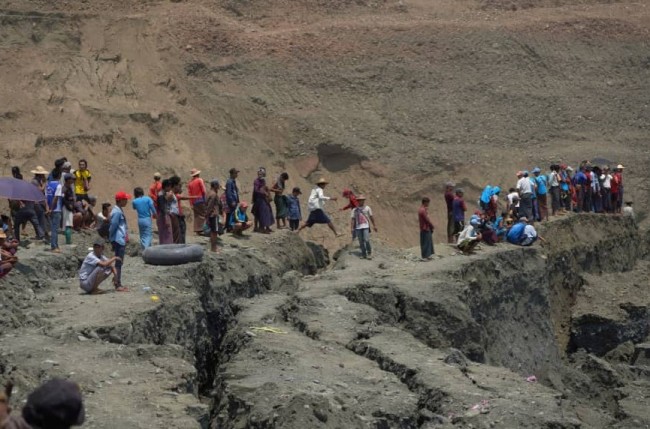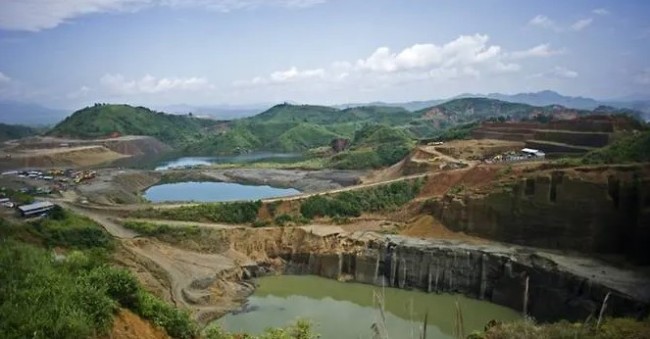More than 50 people are feared killed after a landslide in northern Myanmar engulfed jade miners while they were sleeping, local police said Tuesday, the latest deadly accident in a notoriously dangerous industry.
Three bodies had been pulled from the debris, Tin Soe, a lawmaker representing the jade-rich Hpakant area of Kachin state in the north, said.
Deadly landslides and other accidents are common in the poorly regulated mines of Hpakant.
 |
Local people look around a jade mine where the mud dam collapsed, in Hpakant, Myanmar on Tuesday. (REUTERS) |
A total of 54 workers for two mining companies, along with 40 machines and vehicles including backhoes and trucks, were trapped when the large refuse pile collapsed late at night on Monday, he said.
"They won’t survive. It is not possible because they are buried under mud,” Tin Soe told Reuters by phone. “It is very difficult to retrieve the bodies.”
Hpakant’s fire brigade chief, Aye Thein, said a search was mounted after dawn on Tuesday and rescue efforts were going on
Myanmar’s Ministry of Information confirmed on Facebook that 54 workers were missing. It identified the companies involved as Shwe Nagar Koe Kaung and Myanmar Thura.
Myanmar Thura Gems director Hla Soe Oo told AFP by phone he was en route to the site but did not have further details.
The jade industry is largely driven by an insatiable demand from neighbouring China.
 |
Landslides have killed dozens this year around treacherous jade mines in Myanmar`s northern Kachin state. (AFP) |
Watchdog Global Witness estimated that it was worth some US$31 billion in 2014, although very little reaches state coffers.
Northern Myanmar's abundant natural resources - including jade, timber, gold and amber - help finance both sides of a decades-long civil war between ethnic Kachin insurgents and the military.
The fight to control the mines and the revenues they bring frequently traps local civilians in the middle.
A 17-year ceasefire broke down in 2011 and since then more than 100,000 people have been displaced by fighting.
On coming to power in 2016, civilian leader Aung San Suu Kyi promised to make the peace process with the country's myriad armed groups her top priority - a pledge that has yet to yield significant results. (AFP)









